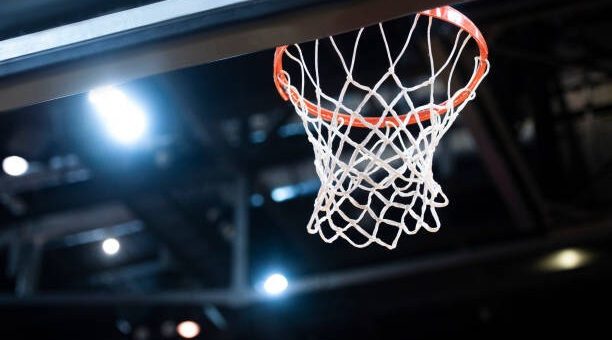Written by Bill Vasko, Founder of XO Coach and The Coaching Portfolio Guide
What to do on a resume if you are at a bad program
Over the years, I have gotten questions from coaches about how to overcome unsuccessful coaching stints or experience at programs that did not have much success on the field or court.
If you’ve been in coaching long enough, at some point you’ll be involved with a bad program or a bad coaching staff.
This is where it is important to utilize your resume and portfolio to focus on all the positive impacts you made as a coach, both on and off the field.
You don’t have to talk about wins and losses…..instead, talk about improvements made by your position group or individual player such as all-conference selections, team GPA, kids that went on to play at the college level. Was there a first-time achievement, such as the first player to make all-city first team, or the first time beating a particular opponent in a long time?
Academic progress is an important component of any athletic program. It’s also an area that AD’s or head coaches will want to see on your resume. There are a variety of ways to help your athletes succeed in the classroom while also helping them achieve their goals upon graduating. Create a plan, document it, and modify and adapt it as you go.
You can also focus on community involvement aspects of the program. For example, community service activities, fundraising events, or clinics for the young athletes and feeder programs in your area.
Another area to highlight are professional development opportunities that you engaged in, for example, camps, clinics, professional organizations, and continuing education opportunities. Try to get involved in as many activities with your national or state coaches’ association as possible.
Think outside the box for external activities that you were involved in. Were you a member of a committee or did you help coach an all-star game, or help select all-conference teams?
If you haven’t been involved in those kinds of opportunities, you need to start doing it, and documenting it in your resume.
Sometimes, you really must sit down and think about all of the ways that you have made a positive impact on your program and your athletes, even if you didn’t have a winning outcome at the end of the season. Take the focus off the bad and instead focus on the good!
Bridging Gaps in Your Coaching Experience on Your Resume
There are two kinds of harmful gaps on a coaching resume. One is a lack of experience and the other is a lack of career-related skills. Both seem like insurmountable hurdles because you can’t gain experience without a coaching job and it can take time to acquire coaching-related skills.
Many coaches or aspiring coaches may be working a full-time job in an entirely different profession. This can make it even more difficult to obtain the experience and skills to climb the proverbial coaching ladder. However, there are ways to gain invaluable experience that will not only look good on a resume but will also hone your professional skills. Here are some ways you can accomplish this:
Join professional organizations
Join as many as you can. There are plenty of organizations related to each sport, such as state and national coaches’ associations. There are also organizations related to other areas, for example, strength and conditioning, nutrition, or overall professional development.
Often, within your coaches’ associations, there are opportunities for serving on a committee. This is not only a great opportunity for resume-filling experience, but also an excellent networking opportunity as well.
Clinics
Attending clinics within your sport or clinics associated with coaching in some manner is a terrific way to not only educate yourself and gain experience but is again an opportunity to grow your coaching network!
Camps
Camps can benefit you in so many positive ways. They are a source of extra income. They are also another opportunity to not only meet more coaches, but also a chance to learn from these coaches. Plus, you get to work with young athletes while working on your coaching techniques and methods.
Private training, instruction, and lessons
Training athletes and giving instruction/lessons locally is the best way to fill a gap when you aren’t coaching. Especially if you are working in another job/profession. It’s important to show that you are still involved in coaching and your sport in some manner. It’s best to provide instruction under a company name. It is very easy to create your own company. I recommend going the route of a sole proprietorship versus an LLC. Having your own company is good for personal branding and looks much better on your resume than just listing “personal training” or “private lessons.”
Side Businesses
Starting a side business is another great way to fill a gap when you aren’t coaching. With the internet and social media, there are tons of ways to create content and resources that you may even be able to profit from while also helping other coaches or athletes. If you have a specific skill or knowledge in an area that can benefit someone else, figure out a way to share that information.
In my early days, I created strength and conditioning program templates for coaches who were unfamiliar with the training aspect of coaching. I have also created resources that assist athletes, parents, and coaches navigate the recruiting process. The Coaching Portfolio Guide was created after I wrote a short article on developing coaching portfolios. And when I grew tired of working for other camps that were disorganized and poorly operated, I created my own camp company. There are so many opportunities for entrepreneurs in the coaching profession. You can even host your own clinics or webinars!
Continuing Education
Take additional college classes or take advantage of continuing education opportunities such as clinics, webinars, conferences, etc. Obtain documentation or certification whenever possible.
Certifications and Licenses
Many professional organizations provide opportunities to become certified in specific areas of coaching or training. These opportunities can help add valuable information to your resume while also giving you experience and training within the profession.
Need Additional Help?
If you need help with your coaching resume or portfolio, check out The Coaching Portfolio Guide. The Coaching Portfolio Guide is an instructional, membership-based website that helps you develop a personalized portfolio for any sport. We also have tips and templates for resumes and cover letters. Receive a FREE copy of The Complete Guide to the Coaching Interview, which includes over 250 sample interview questions specific to coaching jobs + the best answers to common interview questions, when you sign up for The Coaching Portfolio Guide.







